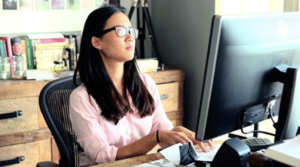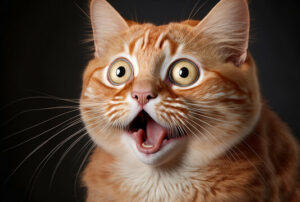In this video, I present you the 15 gestures that are very often used in France. These gestures will be useful to better understand your interlocutors and progress in French.
List of 15 gestures to know
0:00 - Introduction
0:47 - Being afraid
1:12 - Silver
1:38 - Fed up
2:07 - Being drunk
2:43 - To be blasé
3:35 - To have the balls, to be fed up
4:04 - Being crazy
4:28 - Hush, be quiet
5:01 - Ouch!
5:34 - I'm off, let's go
6:00 - Smoking, cigarette
6:26 - Fingers crossed
6:49 - Touch wood
7:32 - Conclusion
Transcript of the video
Hello, I hope you're well and that your learning French is going well.
So in this video, I'd like to take a look at 15 gestures used by the French when speaking. These are gestures that either accompany expressions, or sometimes even replace them. Every language, every culture has its own gestures, its own way of making itself understood. So, here we're going to look at 15 of them together to help you improve your French and learn more about French culture. Here's the first gesture.
So, this gesture means to be afraid. So, for example, I might say "Last night, I watched a scary movie by myself, I was like that" to say that I was terrified, I was very scared. So the next gesture is this one. This gesture simply means money.
For example, I could say if one of my friends says "I'm off to buy some beers", I could say "ah, do you have any money?" and offer to give him some, that even this gesture alone, everyone understands that it's money. Then the next gesture is this one... So it literally means you're in over your head. So, it's an expression that's really used in French to say that you're pissed off, that you've had enough.
So, for example, I could say "my boss is still forcing me to work pfff overtime" to say that you're really fed up. Then the next gesture is this one. So, it's a bit of a strange gesture that means you or someone is drunk.
For example, if I go... it could mean I'm drunk, I've had too much to drink.
You can also use it to talk about someone else, for example, I could say "Last night at the party, Céline was completely... she really did anything" to say that she was really drunk. The next gesture is this one... So it's.... so it's a shoulder movement, a shrug, so it means never mind, I don't care.
For example, if my boyfriend goes to the bakery and I've asked him for a pain au chocolat and he comes back and says "there was no more pain au chocolat, I got you a croissant" I can do ... to say I don't care, it's a bit the same for me.
So you can use it for very simple things, but also to show your annoyance a little more, for example, if your phone is regularly out of order and once again it's out of order, I could just say "as usual, it doesn't change". Then the next gesture is this. So this is a gesture that means you're really pissed off, when I do this, I say I'm pissed off, it means you're really fed up with a situation, you're pissed off, you're drunk, you can't take it anymore. For example, you might say I've taken the same French exam twelve times now, I'm never going to pass, I can't take it anymore. So the gesture is often this one. So when you use this, you can say that someone is crazy, that they've lost all their wits, that they're not quite right in the head. So, for example, I might use it to say "Christian ran a red light with his car and insulted the policeman who stopped him, he's really crazy". The next gesture is this one.
So, it's not a very pleasant gesture, in fact, when you do this, you're saying to someone "tais-toi" or in more colloquial, vulgar French, "Ta gueule!" So, if you say that to someone, they might be a bit annoyed. It's not very pleasant to receive this gesture, but you can always use it in a slightly ironic, humorous way, if, for example, someone is teasing you and you want to say "oh c'est bon, tais-toi".
So the next gesture is this one. It means ouch, ouch, ouch! It's when a situation, or you've done something, or it's not very good for you what's going to happen next, you're not in a very good posture, in a very good situation. For example, I could say "I broke my mother's favorite vase, she's going to yell at me too much" to say that what's going to happen to you isn't very cool and isn't very positive.
The next gesture is this one. It's a gesture that means "I'm leaving" or "we're leaving" to say that you're going to leave a place or that you're telling someone, we're going. So, for example, you're at a party and you want to leave and tell the person who invited you, but there's music playing, so you look at him and say "I'm going". The next gesture is this one.
It's a gesture that actually represents a cigarette. You can use the gesture to suggest that someone go for a smoke, so you can say "we're going for a smoke", or to ask someone for a cigarette. The next two gestures we'll look at are French luck gestures. The first is this one. In French, we say "croiser les doigts". When you cross your fingers for someone, or even cross your fingers for yourself, it's "you're bringing someone luck, or you're trying to bring yourself luck". For example, I might say to someone: "Good luck on your French exam, I'm crossing my fingers for you". Then the next gesture, which is linked to an expression, and the expression is "touch wood". So when you touch wood in French, it's also for good luck. So, in fact, when I say "ah j'espère que tu vas réussir ton examen de français, je touche du bois!"
You really have to touch wood very quickly, because if you don't, the opposite happens - you bring bad luck to the person. So, as soon as you say in French, "je touche du bois pour toi" (I touch wood for you), you have to touch wood very quickly.
So you can use it for example... I can say "I played the lottery tonight, the jackpot is 7 million, knock on wood to win". That's it for today, we've seen 15 gestures that will help you improve and go further in your learning of French. I hope you enjoyed this video. If you did, don't hesitate to "Like" it or subscribe to the channel. If you'd like more content, you can also visit www.hellofrench.com. See you soon!








